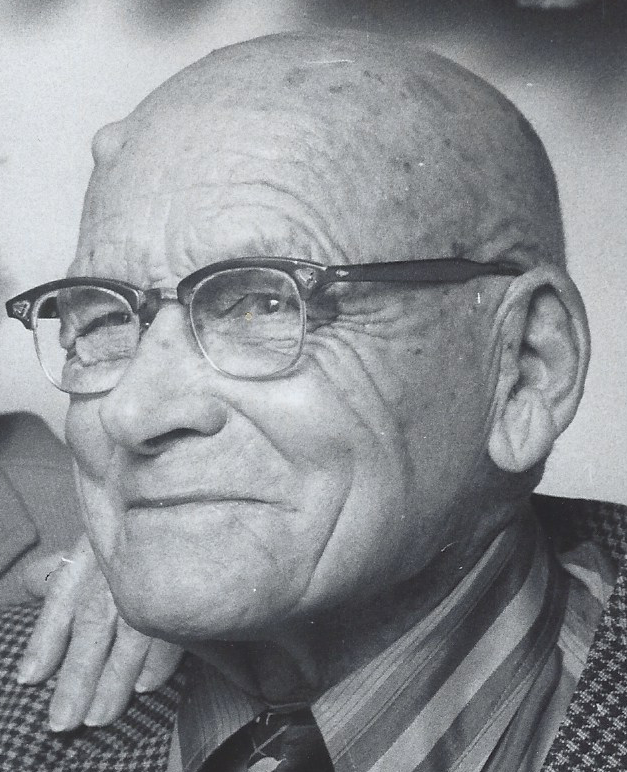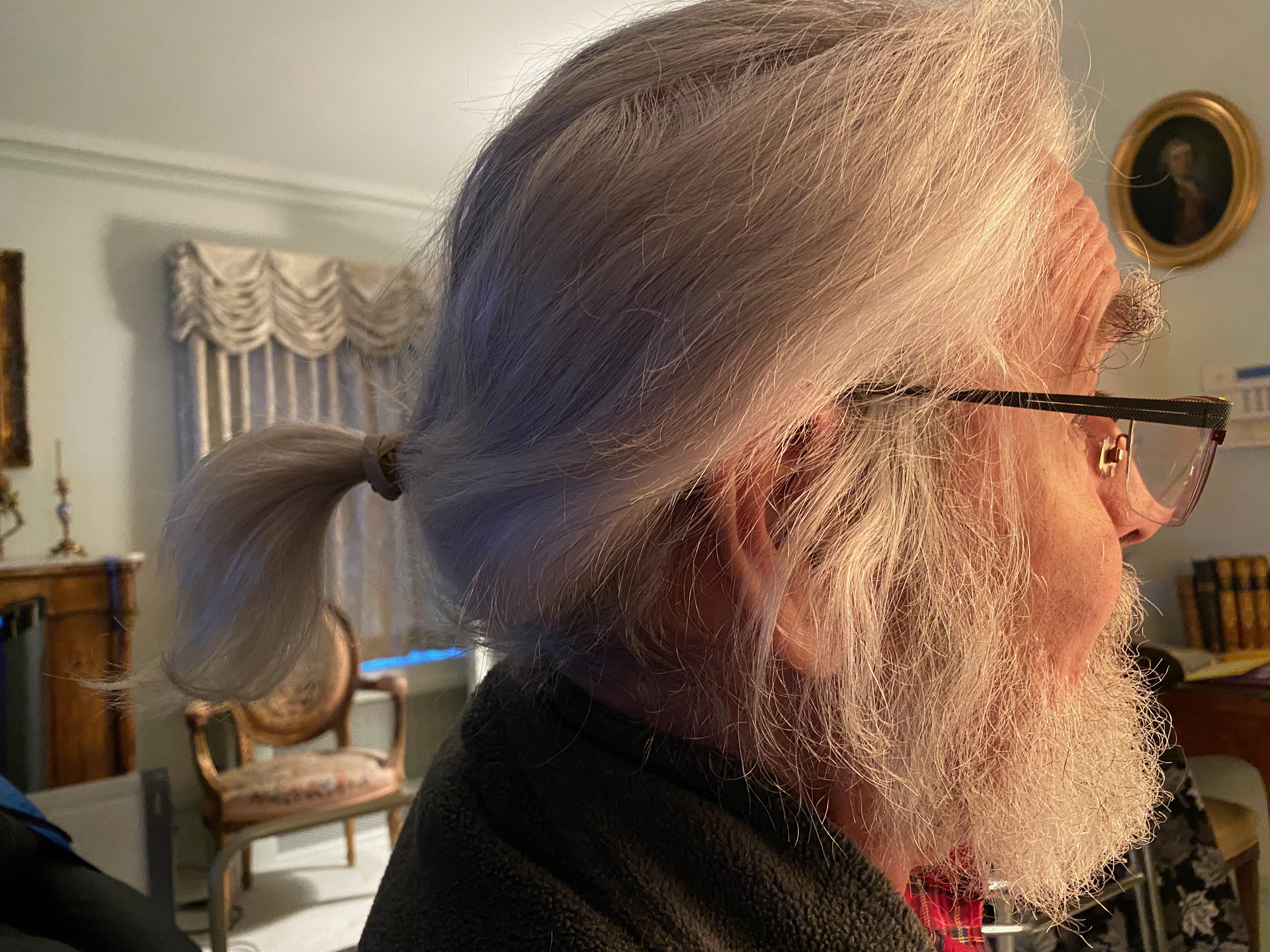50 Word choice – “premature versus precocial”
By any definition, my maternal Granddad was bald. What remnant hairs survived on his head were scattered, delicate, lightly colored, and essentially invisible. And he had a prominent bump on his forehead.

When I was five or so, I asked him how he got that bump. He told me that my Grandmother once got mad at him, broke a milk bottle over his head, thus knocking him out cold. This clobbering not only induced a permanent bump on his forehead, but also caused his baldness. Huh? He said while he was unconscious on the back porch, a tom cat happened by and licked off the milk, and with it all the hair on his head. I was skeptical.
I thought nothing more about baldness until I reached an age at when some men start to bald. My Father kept most of his hair through his life, but my maternal Grandfather obviously did not. Which genes did I inherit? Both my parents initially had black hair, and so did I (at least when I was young). So, I wondered whether I would grow gray before becoming bald, if I were to become bald. I never bothered to check the genetic odds.
Nevertheless, I would occasionally think about graying and balding. In particular, I started thinking about the adjective that I would use to characterize my own hair, especially if the ontogenetic shift in hair density or color occurred early in my life (as it did for my Granddad). In such cases, people often refer to “premature” baldness or to “premature” graying.
But “premature” literally implies too early and is thus pejorative. Although I can’t control the timing of major aging events such as graying or balding, I can choose the words that describe my condition. So, I decided to start referring to ‘precocious’ baldness and ‘precocious’ graying, where precocious implies maturing at an early age. Unlike premature, precocious is positive!
I shared my linguistic innovations with Brad, a friend who was precociously bald. He countered that I was too nice and encouraged me to start referring to ‘retarded’ balders and ‘retarded grayers.’ I instantly liked Brad’s aggressive yet positive attitude. By substituting “retarded” for “premature,” Brad was running Steven Pinker’s Euphemism treadmill in reverse!
I am now almost completely gray (or almost silver) and still have most of my hair. But during the Pandemic, I faced a new challenge: how do I get a haircut without going to a barber?
Options? When I was in college in the ’60s and early ’70s, many men and women had long hair; and this was celebrated in “Hair: The American Tribal Love-Rock Musical.” I had reasonably long hair back then and could certainly grow it again. However, at my age, the result would be unlikely to be “shining, gleaming, streaming, flaxen, waxen.”
For the first eight or nine months of the pandemic, I just let my hair grow – eventually it was just long enough for a mini-ponytail (my first). That was enough for me, and I finally succumbed to a professional haircut. A 70+ year old trying to match his look in his 20s was grating.
